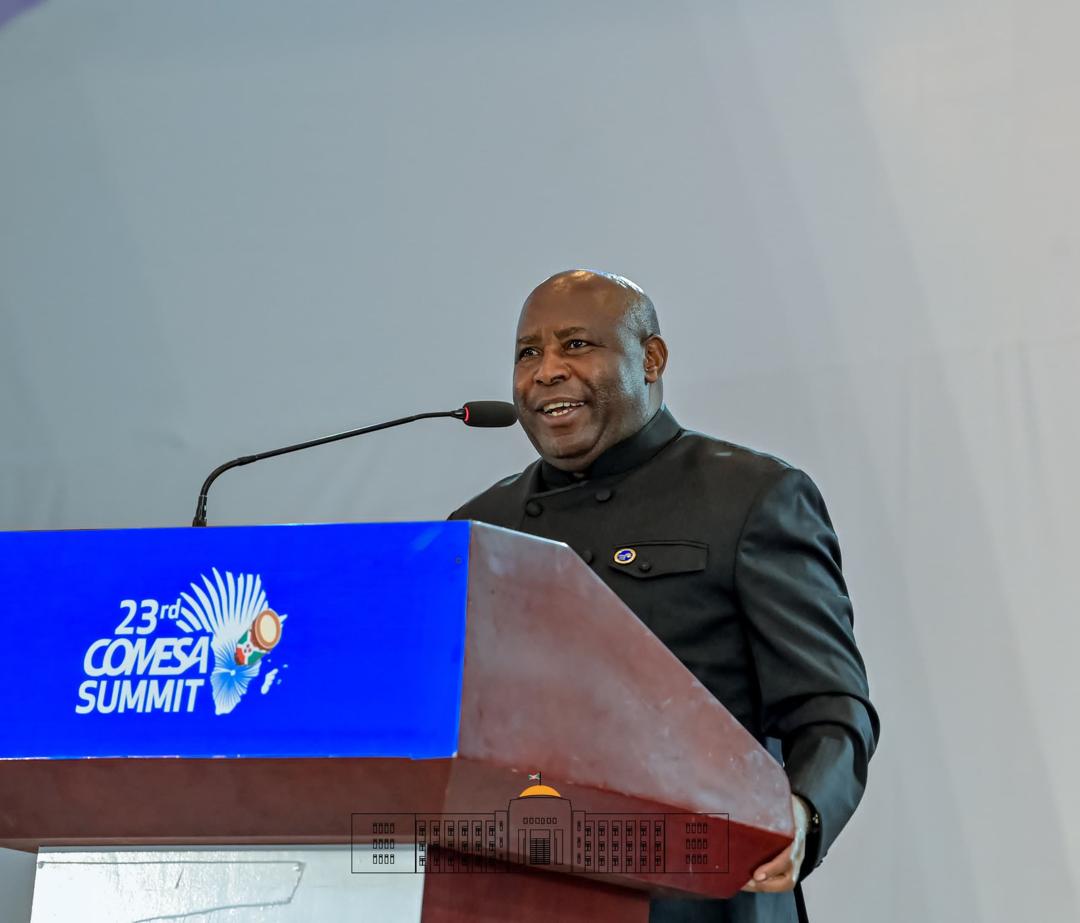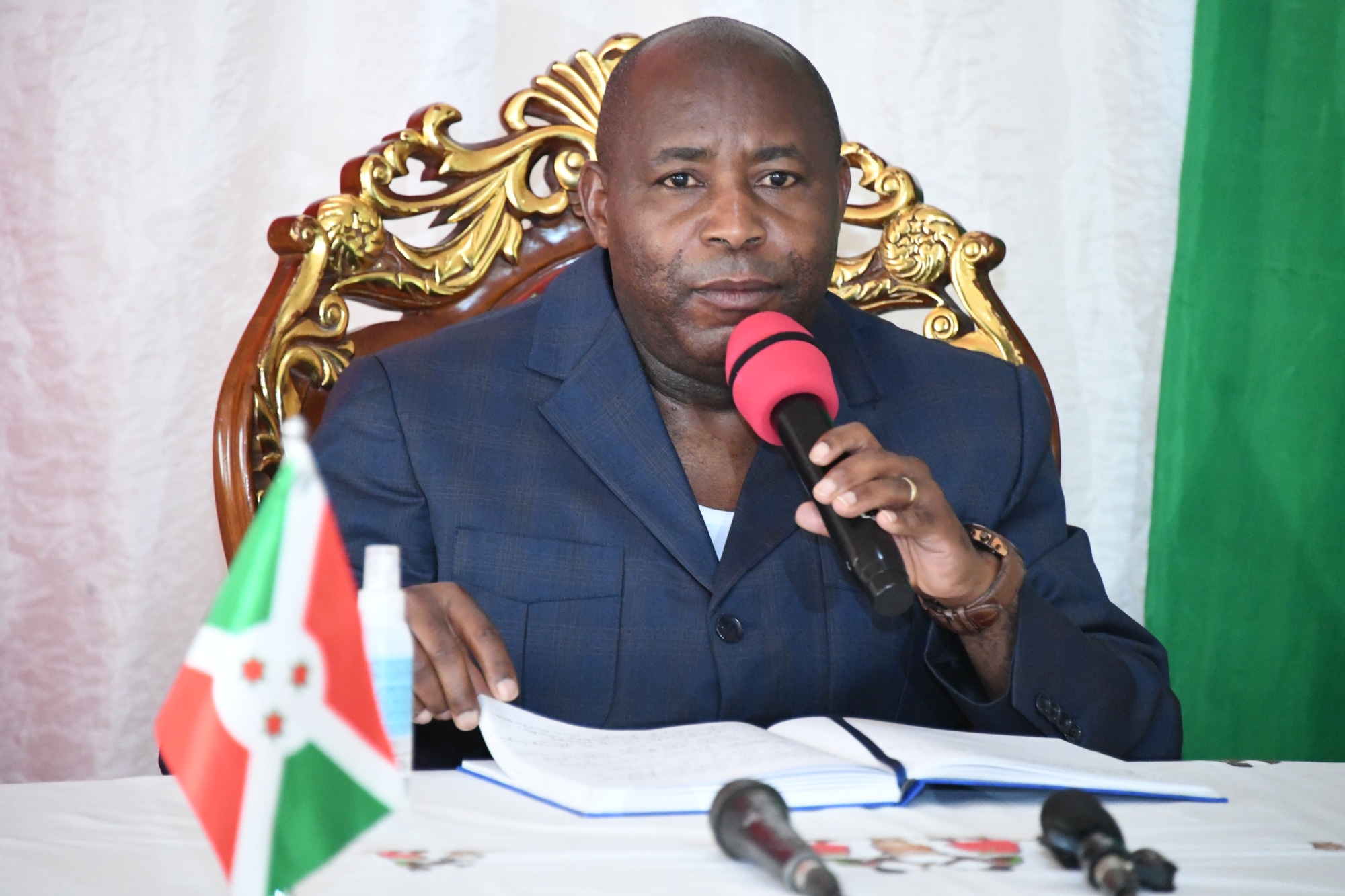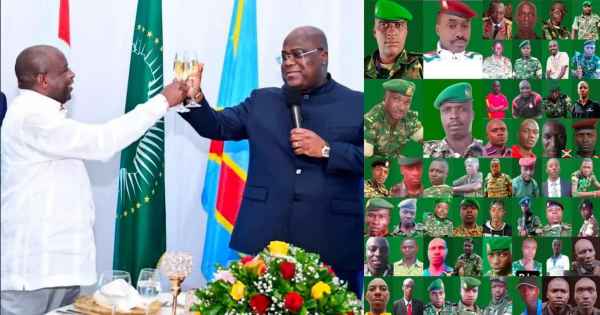Regional
Will Ndayishimiye propel COMESA forward?

During the 23rd Common Market for Eastern and Southern Africa (COMESA) Heads of State Summit that took place in Burundi, on October 31, President Evariste Ndayishimiye assumed the role of Chairman of the regional bloc, succeeding Zambia’s Hakainde Hichilema.
Ndayishimiye
will lead COMESA for the next year. The trade bloc’s aim is to promote regional
integration through trade and the development of natural and human resources
for the mutual benefit of all people in the region.
But
political commentators wonder whether Ndayishimiye will mind COMESA's
objectives given his history of making self-serving, unilateral decisions that
have contributed not only to Burundi's political and economic crisis, but also
insecurity in the wider region.
Ever
since he came to power, Ndayishimiye gradually lost the confidence of
Burundians because of his unilateral decisions, such as the closure of the
border with neighboring Rwanda. It deepened dissatisfaction, primarily
affecting Burundians and the region in general.
Profitable
export products can no longer reach the Rwandan market from Burundi, or the
Burundian market from Rwanda. The cost of imported goods has risen, as Rwanda
serves as the most accessible transit point for imports from Mombasa and Dar es
Salaam.
Sugar
prices rose from 3,000 BIF to 8,000 BIF, while fuel prices increased from 2,100
BIF to 4,000 BIF in 2023.
Petrol
and diesel are now sold on the black market at exorbitant prices that only a
few wealthy individuals can afford.
Regardless
of their rivalry, the US and China, the world’s two largest economic powers,
never ceased trading with each other because they recognize the benefits of
international integration for both nations and their people.
Even
during the escalating tensions between Rwanda and the Democratic Republic of
Congo, none of the two countries has ever closed its borders. Perhaps
Ndayishimiye is unable to understand why.
Despite
the fact that armed conflicts in the region hinder regional integration,
Ndayishimiye, a former Chairperson of the East African Community, had the
opportunity to play a pivotal role in supporting the peace process to end the
violence in eastern DRC. But he chose to intervene militarily by sending the
Burundian army to assist the Congolese forces in their fight against the M23
rebels. This move undermined the peace efforts aimed at restoring stability in
the region. Furthermore, the decision sparked internal divisions within his
government, as it was made unilaterally.
Tensions
between countries should be resolved through diplomacy, not by depriving
populations of their rights.
Today,
Burundi is documented as the poorest country in the world, with 87 percent of
its population living on less than USD 1.90 a day, according to the World Bank.
The economy is struggling to achieve sustained long-term growth, facing
challenges such as a shortage of foreign currency and escalating debt levels.
If
only Ndayishimiye could set aside his self-serving interests and align himself
with the goals of COMESA, it could help resolve Burundi's economic crisis and
promote regional integration through trade and the development of natural and
human resources, benefiting all people in the region.





